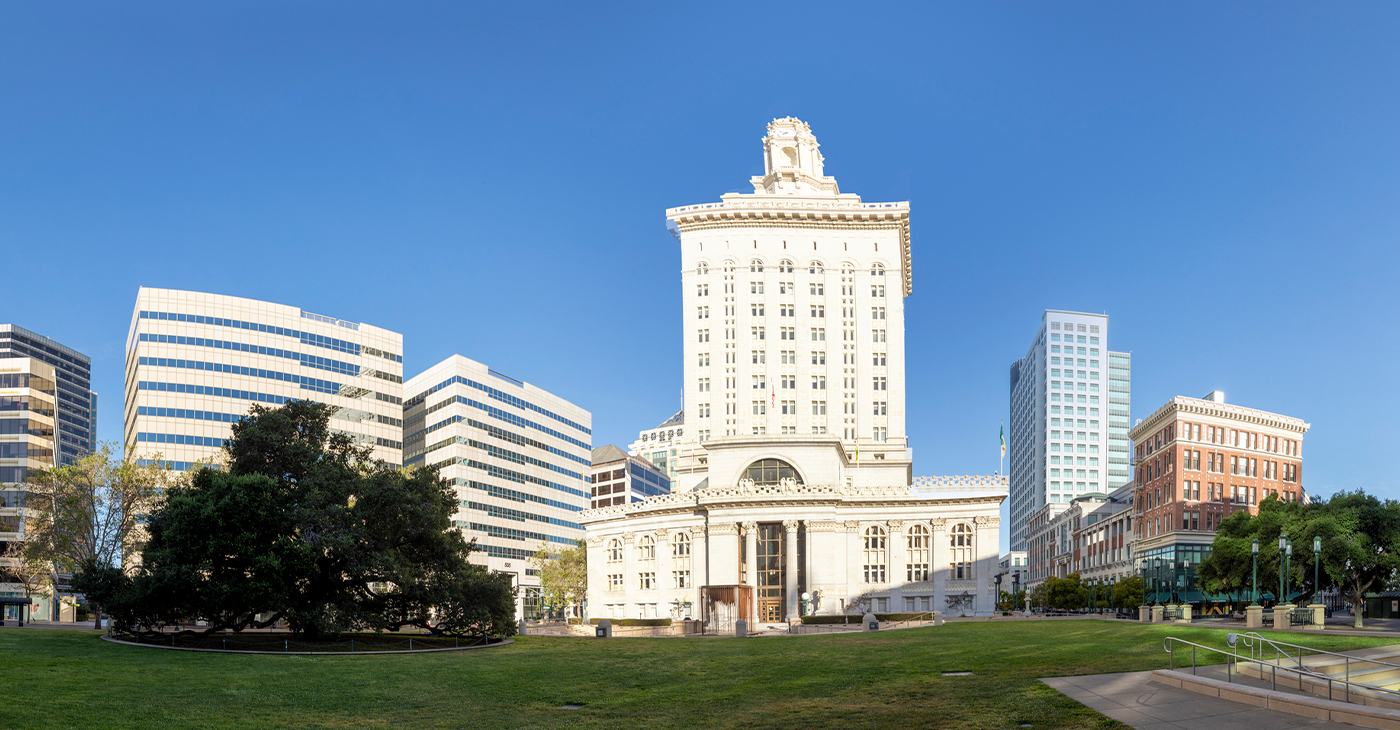Economy
Mayor Woodfin proposes $451M FY 2020 budget with focus in neighborhoods
THE BIRMINGHAM TIMES — Birmingham Mayor Randall Woodfin on Tuesday unveiled a $451 million fiscal 2020 budget that includes a focus on neighborhood revitalization and an increase in the pension fund for city employees. The budget is a 2.4 percent increase over the $440 million fiscal 2019 budget approved last year by the City Council. The fiscal year begins July 1.
By Erica Wright
Birmingham Mayor Randall Woodfin on Tuesday unveiled a $451 million fiscal 2020 budget that includes a focus on neighborhood revitalization and an increase in the pension fund for city employees.
The budget is a 2.4 percent increase over the $440 million fiscal 2019 budget approved last year by the City Council. The fiscal year begins July 1.
The budget projects tax and license revenue increase of $6.5 million over 2019 which will be combined with $3 million of commercial construction fees and revenue from the state’s recently approved gas tax.
Up to $14 million in this year’s budget will go to neighborhood revitalization in the form of demolition, street paving, weed abatement and the Birmingham Land Bank Authority, which returns vacant, abandoned and tax-delinquent properties back to the tax rolls, the mayor said.
“These things are important as it relates to the issues I still hear when I’m addressing residents, whether it’s at a neighborhood meeting or church or at their door, [they’re saying] ‘mayor, please pave these streets and please tear these houses down,’” said Woodfin, who delivered his budget message to the council on Tuesday and residents at the Birmingham CrossPlex later in the evening.
Woodfin said his administration is not just talking about the concerns but the money that is in the budget reflects solutions.
The city is not proposing a cost-of-living adjustment (COLA) this year because of the money put toward areas such as merit pay ($3 million), health insurance ($3 million), longevity pay ($2 million) and the pension ($5.8 million) which totaled $13.8 million, the mayor said.
“We did not do a COLA this year, but it doesn’t mean we won’t do one next year, it means this year with the tough decisions we had to make including the number one priority of filling the pension, we couldn’t do all five at the level we wanted to,” he said.
Merit pay is performance-related pay that provides bonuses for workers who perform their jobs effectively according to certain criteria.
As for the pension, he said, “our greatest asset is our city employees and they deserve to have a fully-funded pension and I’m happy to say the city’s portion of meeting our obligation, we will actually meet in this budget. I would say tied for first place in this budget’s priorities were paving streets and our pension funding and we met both.”
Highlights of the mayor’s proposed budget include:
- $8 million, street paving and pothole repair (an increase of $5.5 million over last year)
- $5.8 million, pension contribution increase
- $4.7 million, demolition and weed abatement (an increase of $1.5 million over last year)
- $1.5 million real time crime center
- $1 million, land bank (an increase of $650,000 over last year)
The spending plan has no funding for non-profit organizations, although the mayor said the city continues to support non-profits, but the focus has to be on public safety, he said.
“I have a moral obligation to public safety and public infrastructure as it relates to how to allocate the city’s tax dollars,” said Woodfin. “When you talk about public safety, that’s the main employee groups including police, fire and public works . . . you have to make those investments because no one else is responsible for [public safety and public infrastructure] . . .which means by moral obligation and by fiscal obligation, they’re the priority.”
The planned $1.5 million for a “real time” crime center will help the Birmingham Police Department modernize a digital-based records keeping program.
The mayor also announced The Birmingham Promise, which represents a $2 million commitment to secondary and post-secondary workforce development, creating apprenticeships and real opportunities for the city’s youth as they enter the job market.
“It is past the time as a city we commit to workforce development and the best place is to focus on our young people,” he said.
The mayor also is proposing to increase the discretionary fund for each council district to $100,000 from $50,000.
Neighborhoods
The investment in the land bank reflects an investment in the neighborhoods, Woodfin said.
The budget reflects a $700,000 increase in the Land Bank which has been in existence for about five years and the same amount of money has been in it every year, Woodfin said.
“We wanted to show neighborhood revitalization isn’t just about tearing down houses, you have to remove the blight but you don’t want a city that’s snaggletooth,” he said. “At some point you have to go back vertical on these empty lots which includes affordable and single family homes and when you add an additional $700,000 that sends a signal to this community that we’re serious about this land bank and it also puts me in a position to be able to go out here and talk to certain stakeholder groups and say the city has shown its commitment for its land bank.
“We’re showing our commitment to neighborhood revitalization by increasing the rate of moving these properties off the tax delinquency and moving them towards going back vertical on this empty lots,” he said.
The proposed operating budget and capital budget for the 2020 fiscal year can be found at www.birminghamal.gov/budget2020.
This article originally appeared in The Birmingham Times.
Bay Area
Glydways Breaking Ground on 14-Acre Demonstration Facility at Hilltop Mall
Glydways has been testing its technology at CCTA’s GoMentum Station in Concord for several years. The company plans to install an ambitious 28-mile Autonomous Transit Network in East Contra Costa County. The new Richmond facility will be strategically positioned near that project, according to Glydways.

The Richmond Standard
Glydways, developer of microtransit systems using autonomous, small-scale vehicles, is breaking ground on a 14-acre Development and Demonstration Facility at the former Hilltop Mall property in Richmond, the Contra Costa Transportation Authority (CCTA) reported on social media.
Glydways, which released a statement announcing the project Monday, is using the site while the mall property undergoes a larger redevelopment.
“In the interim, Glydways will use a portion of the property to showcase its technology and conduct safety and reliability testing,” the company said.
Glydways has been testing its technology at CCTA’s GoMentum Station in Concord for several years. The company plans to install an ambitious 28-mile Autonomous Transit Network in East Contra Costa County. The new Richmond facility will be strategically positioned near that project, according to Glydways.
The new Richmond development hub will include “over a mile of dedicated test track, enabling Glydways to refine its solutions in a controlled environment while simulating real-world conditions,” the company said.
Visitors to the facility will be able to experience on-demand travel, explore the control center and visit a showroom featuring virtual reality demonstrations of Glydways projects worldwide.
The hub will also house a 13,000-square-foot maintenance and storage facility to service the growing fleet of Glydcars.
“With this new facility [at the former Hilltop Mall property], we’re giving the public a glimpse of the future, where people can experience ultra-quiet, on-demand transit—just like hailing a rideshare, but with the reliability and affordability of public transit,” said Tim Haile, executive director of CCTA.
Janet Galvez, vice president and investment officer at Prologis, owner of the Hilltop Mall property, said her company is “thrilled” to provide space for Glydways and is continuing to work with the city on future redevelopment plans for the broader mall property.
Richmond City Manager Shasa Curl added that Glydways’ presence “will not only help test new transit solutions but also activate the former Mall site while preparation and finalization of the Hilltop Horizon Specific Plan is underway.
Alameda County
Last City Council Meeting of the Year Ends on Sour Note with Big Budget Cuts
In a five to one vote, with Councilmembers Carroll Fife and Janani Ramachandran excused, the council passed a plan aimed at balancing the $130 million deficit the city is facing. Noel Gallo voted against the plan, previously citing concerns over public safety cuts, while Nikki Fortunato-Bas, Treva Reid, Rebecca Kaplan, Kevin Jenkins, and Dan Kalb voted in agreement with the plan.

By Magaly Muñoz
In the last lengthy Tuesday meeting of the Oakland City Council for 2024, residents expressed strong opposition to the much needed budget cuts before a change in leadership was finalized with the certification of election results.
In a five to one vote, with Councilmembers Carroll Fife and Janani Ramachandran excused, the council passed a plan aimed at balancing the $130 million deficit the city is facing. Noel Gallo voted against the plan, previously citing concerns over public safety cuts, while Nikki Fortunato-Bas, Treva Reid, Rebecca Kaplan, Kevin Jenkins, and Dan Kalb voted in agreement with the plan.
Oakland police and fire departments, the ambassador program, and city arts and culture will all see significant cuts over the course of two phases.
Phase 1 will eliminate two police academies, brown out two fire stations, eliminate the ambassador program, and reduce police overtime by nearly $25 million. These, with several other cuts across departments, aim to save the city $60 million. In addition, the council simultaneously approved to transfer restricted funds into its general purpose fund, amounting to over $40 million.
Phase 2 includes additional fire station brownouts and the elimination of 91 jobs, aiming to recover almost $16 million in order to balance the rest of the budget.
Several organizations and residents spoke out at the meeting in hopes of swaying the council to not make cuts to their programs.
East Oakland Senior Center volunteers and members, and homeless advocates, filled the plaza just outside of City Hall with rallies to show their disapproval of the new budget plan. Senior residents told the council to “remember that you’ll get old too” and that disturbing their resources will only bring problems for an already struggling community.
While city staff announced that there would not be complete cuts to senior center facilities, there would be significant reductions to staff and possibly inter-program services down the line.
Exiting council member and interim mayor Bas told the public that she is still hopeful that the one-time $125 million Coliseum sale deal will proceed in the near future so that the city would not have to continue with drastic cuts. The deal was intended to save the city for fiscal year 2024-25, but a hold up at the county level has paused any progress and therefore millions of dollars in funds Oakland desperately needs.
The Coliseum sale has been a contentious one. Residents and city leaders were originally against using the deal as a way to balance the budget, citing doubts about the sellers, the African American Sports and Entertainment Group’s (AASEG), ability to complete the deal. Council members Reid, Ramachandran, and Gallo have called several emergency meetings to understand where the first installments of the sale are, with little to no answers.
Bas added that as the new Alameda County Supervisor for D5, a position she starts in a few weeks, she will do everything in her power to push the Coliseum sale along.
The city is also considering a sales tax measure to put on the special election ballot on April 15, 2025, which will also serve as an election to fill the now vacant D2 and mayor positions. The tax increase would raise approximately $29 million annually for Oakland, allowing the city to gain much-needed revenue for the next two-year budget.
The council will discuss the possible sales tax measure on January 9.
Bay Area
New Interim Mayor Nikki Bas Takes Office, Announces Balanced Budget
“The Council made difficult but clear decisions last night,” Mayor Bas said in a statement released Thursday. “With yesterday’s budget adoption, the City of Oakland is on track to maintain our immediate fiscal health and our emergency reserves are at the required level.”

‘The Council made difficult but clear decisions,’ said Bas
Kaplan proposed for Interim District 2 Council seat
By Post Staff
Oakland City Council President Nikki Fortunato Bas was sworn in interim mayor on Wednesday and immediately sat down with City Council members to rebalance the city’s budget, closing a projected deficit and maintaining emergency financial reserves.
“The Council made difficult but clear decisions last night,” Mayor Bas said in a statement released Thursday. “With yesterday’s budget adoption, the City of Oakland is on track to maintain our immediate fiscal health and our emergency reserves are at the required level.”
“The City now seeks to move forward in strong collaboration with its Labor partners and the community-led Budget Advisory Commission toward long-term fiscal sustainability,” she said. “We all deserve to feel safe and secure, whether we’re taking our kids out to play, running our essential small businesses, parking our car on the street, or walking home at night.”
Bas took over as mayor from Sheng Thao, whose last day in office was Tuesday after losing a recall election in November.
“Thank you for choosing me to serve as your mayor. As the first Hmong American woman to become the mayor of a major American city, it has been the honor of my lifetime. I am deeply proud of the progress we created together,” Thao said.
Bas, in her final remarks as a councilmember, proposed that the City Council appoint Kaplan to replace her until the April election.
“As you know Councilmember Kaplan is retiring, she is willing to serve in this interim capacity. She is a resident of District 2 in Jack London, will not run for the seat in the special election; and I believe that she is uniquely qualified to jump in and immediately help to serve our District 2 residents, as well as key projects moving forward, and of course help lead the city’s biennial budget process,” Bas said.
At its meeting this week, the Council affirmed the City Administrator’s budget balancing actions, utilizing unrestricted and transferred funds to help fill the gap and provided direction and strategies to close the remaining need.
The proposals include finding new revenue from increased events and success at the Oakland Coliseum/Arena and other sources, making any further cuts a last resort.
They also proposed to immediately collect unpaid business taxes by doing an internal audit and strengthen controls on OPD overtime overspending.
Said Councilmember Kaplan, “It is vital to protect core public services, and the long-term fiscal solvency of our city. I am honored that the extra available funds I had previously identified have been confirmed, and are being incorporated into budget strategies, allowing Oakland to reduce cuts and restore reserves. In addition, important public serving and revenue-generating functions are being strengthened, including to reduce blight and provide safer, cleaner streets.”
Councilmember Kevin Jenkins (District 6) said, “The Fire Department, which had been preserved from cuts in July, was able to rapidly stop the Keller Fire from growing out of control, which prevented a repeat of the horrific loss of life and loss of homes that took place during the 1991 Oakland Hills Fire.”
According to a Mayor’s Office press statement, Oakland’s investments in the Oakland Police Department and the Department of Violence Prevention have yielded the fastest and most dramatic reduction in homicides in the city’s history.
The City’s deep investments in public safety over the past year continue to pay off, with homicides down 35% year-to-date and overall crime down by 34% since last year. The Public Safety Leadership team is very strong with OPD Chief Floyd Mitchell, DVP Chief Dr. Holly Joshi, OFD Chief Damon Covington, and their deputy chiefs having over a century of collective experience in Oakland.
The budget proposals preserve Oakland’s Ceasefire violence intervention strategy, prioritize OPD patrol and investigations, and continue services to improve 911 response times, with currently 71% of calls answered within 15 seconds or less — a dramatic improvement over the prior year, the press statement said.
Oakland’s investments in sidewalk repair, street paving, clearing abandoned autos, and safer conditions on our roadways are improving both safety and quality of life. The proposals restore funding for important and needed bicycle and pedestrian safety projects, street paving, and parking enforcement, the statement said.
The Council is considering a sales tax ballot measure for the April 15 special election. The proposed half-cent sales tax increase would raise approximately $29 million annually. Ongoing revenue generation and improved efficiencies would help address the City’s structural deficit in the next two-year budget.
-

 Activism4 weeks ago
Activism4 weeks agoOakland Post: Week of November 27 – December 3, 2024
-

 Activism2 weeks ago
Activism2 weeks agoButler, Lee Celebrate Passage of Bill to Honor Congresswoman Shirley Chisholm with Congressional Gold Medal
-

 Activism2 weeks ago
Activism2 weeks agoPost News Group to Host Second Town Hall on Racism, Hate Crimes
-

 Activism2 weeks ago
Activism2 weeks agoDelta Sigma Theta Alumnae Chapters Host World AIDS Day Event
-

 Business2 weeks ago
Business2 weeks agoLandlords Are Using AI to Raise Rents — And California Cities Are Leading the Pushback
-

 Activism3 weeks ago
Activism3 weeks agoOakland Post: Week of December 4 – 10, 2024
-

 #NNPA BlackPress4 weeks ago
#NNPA BlackPress4 weeks agoNational Action Network Announces 2025 Inauguration Day Rally
-

 Arts and Culture1 week ago
Arts and Culture1 week agoPromise Marks Performs Songs of Etta James in One-Woman Show, “A Sunday Kind of Love” at the Black Repertory Theater in Berkeley






























































1 Comment